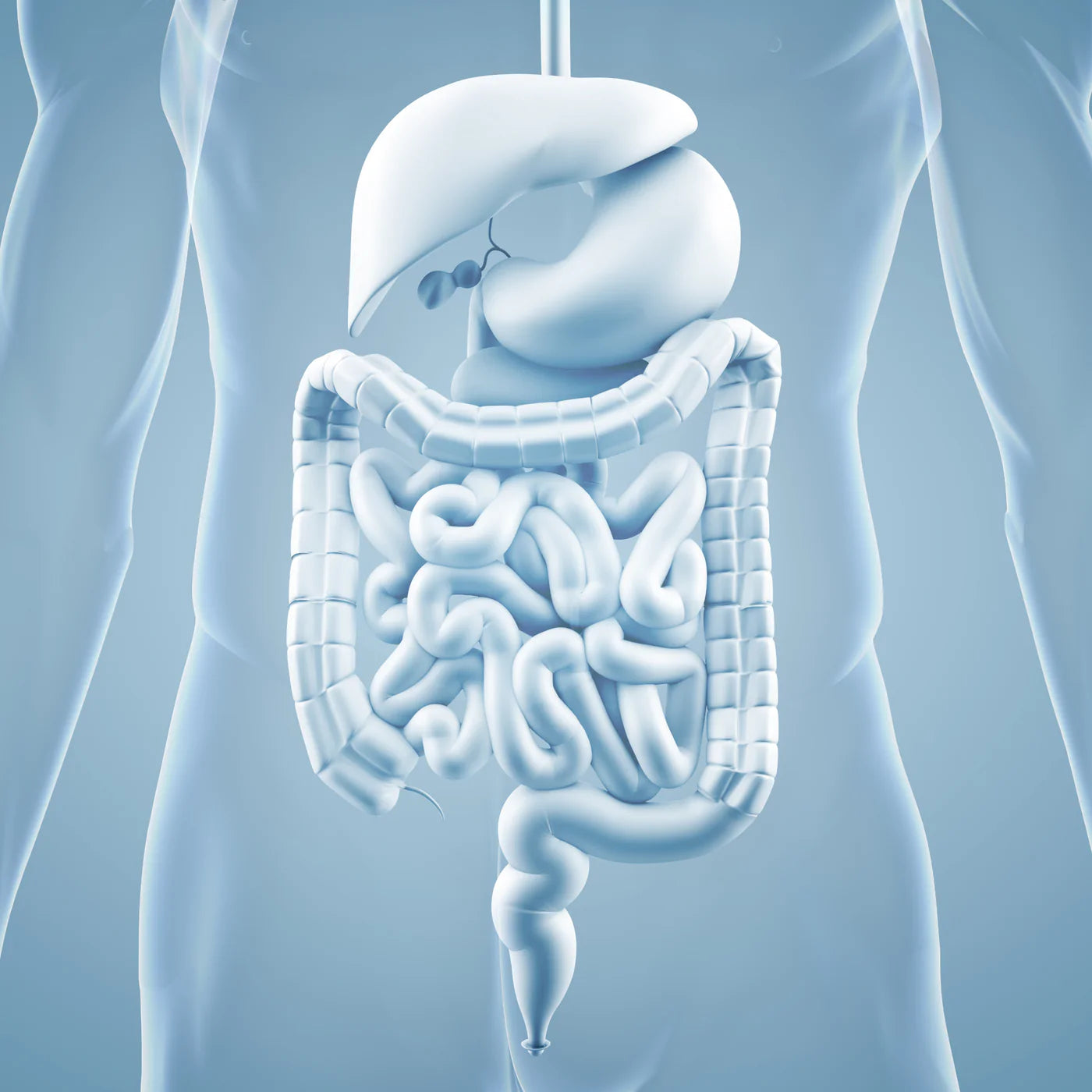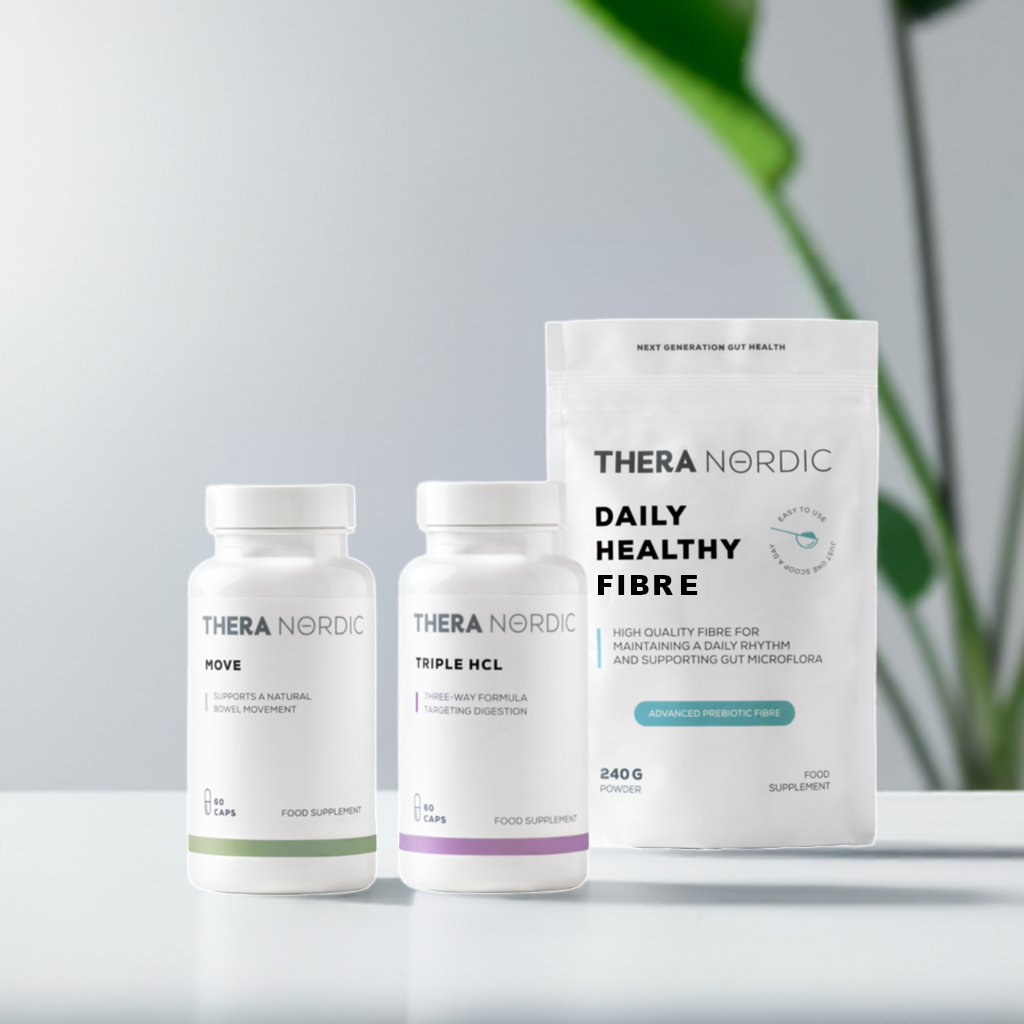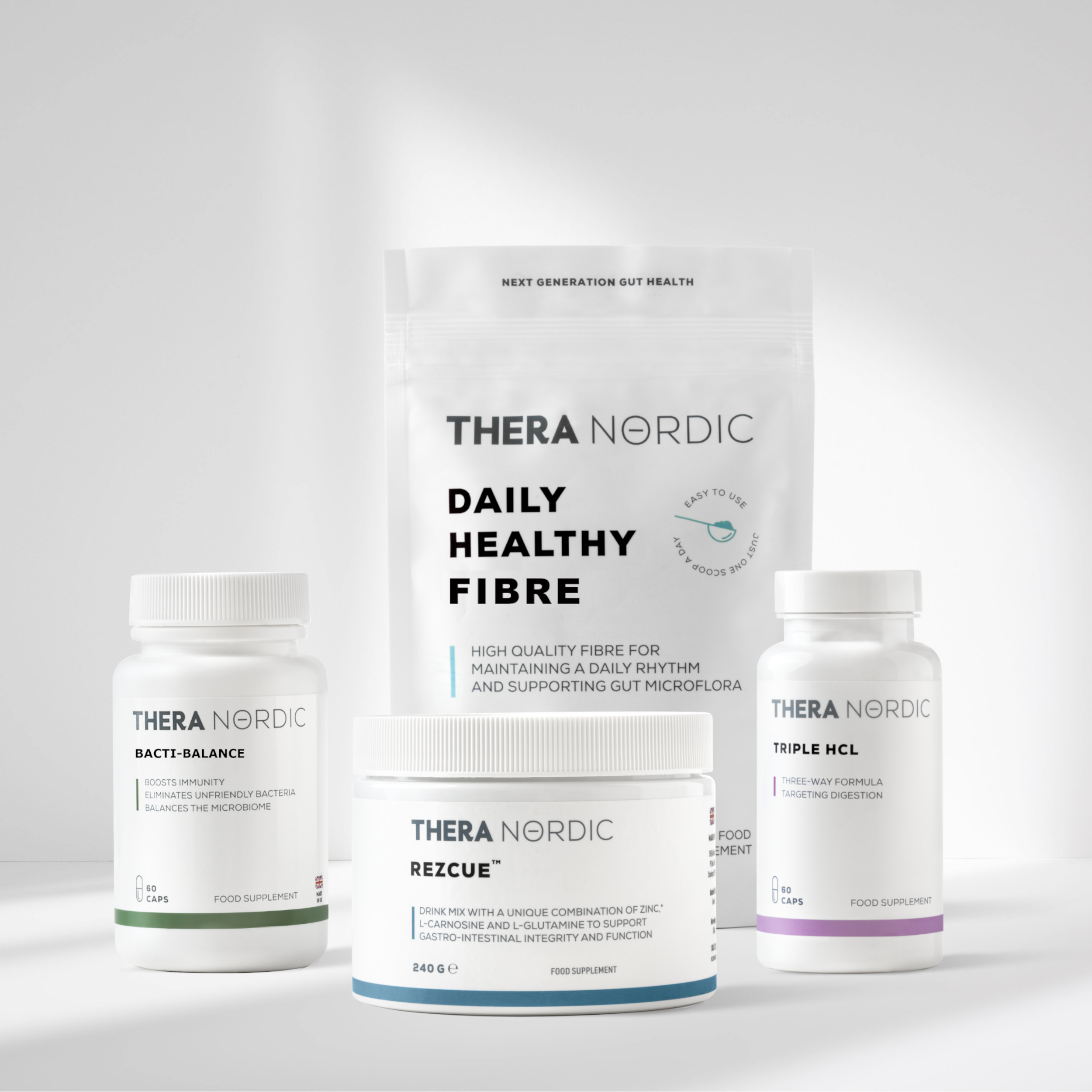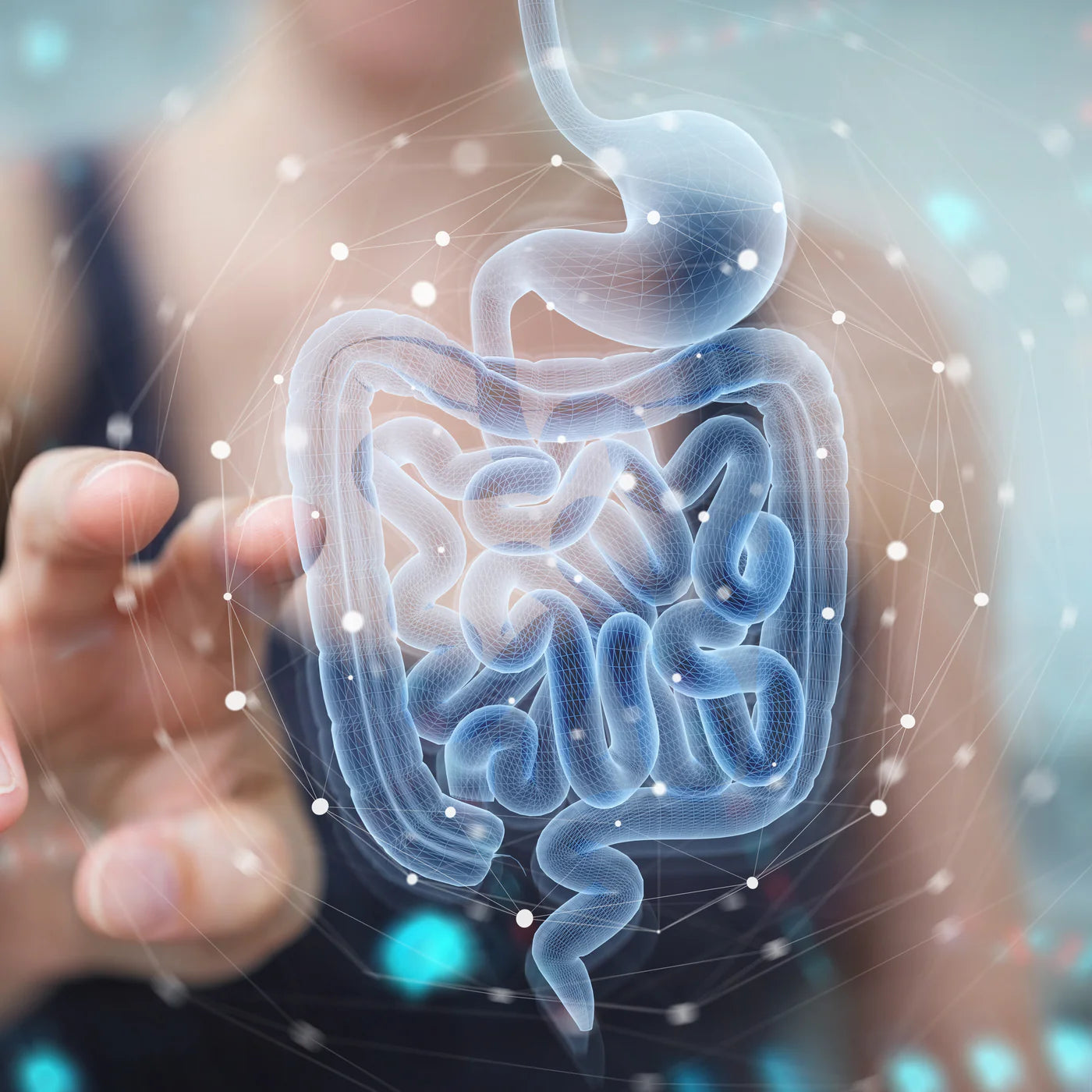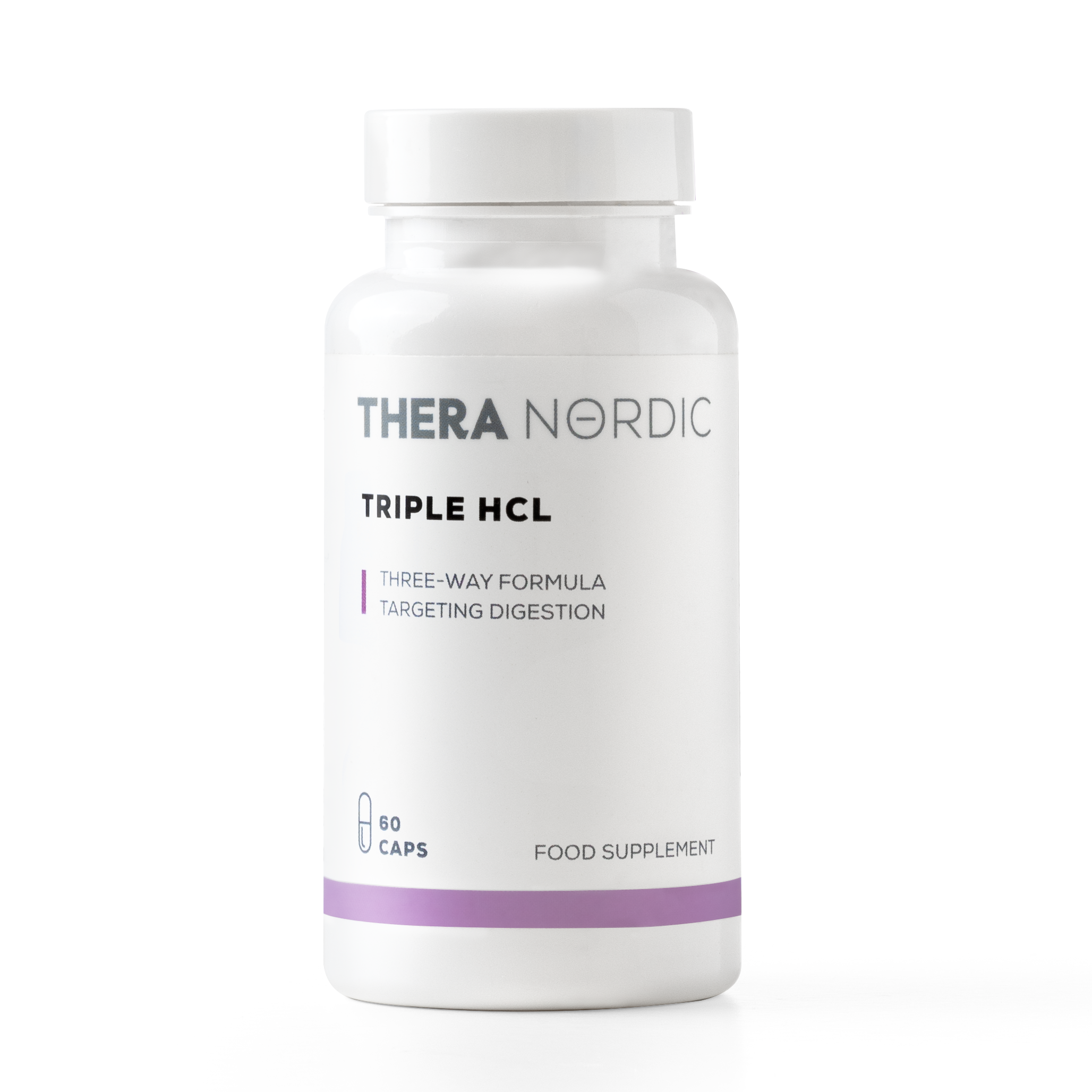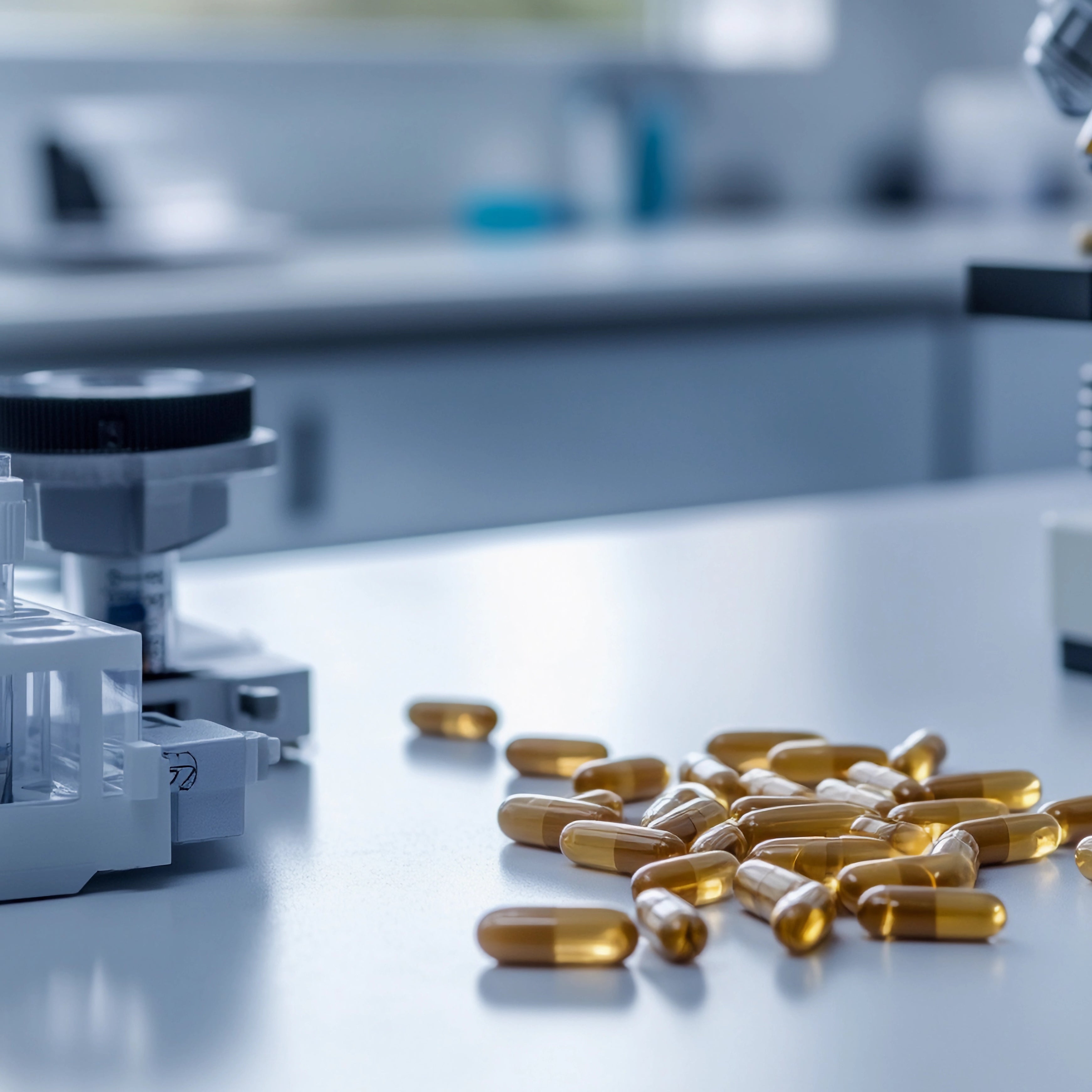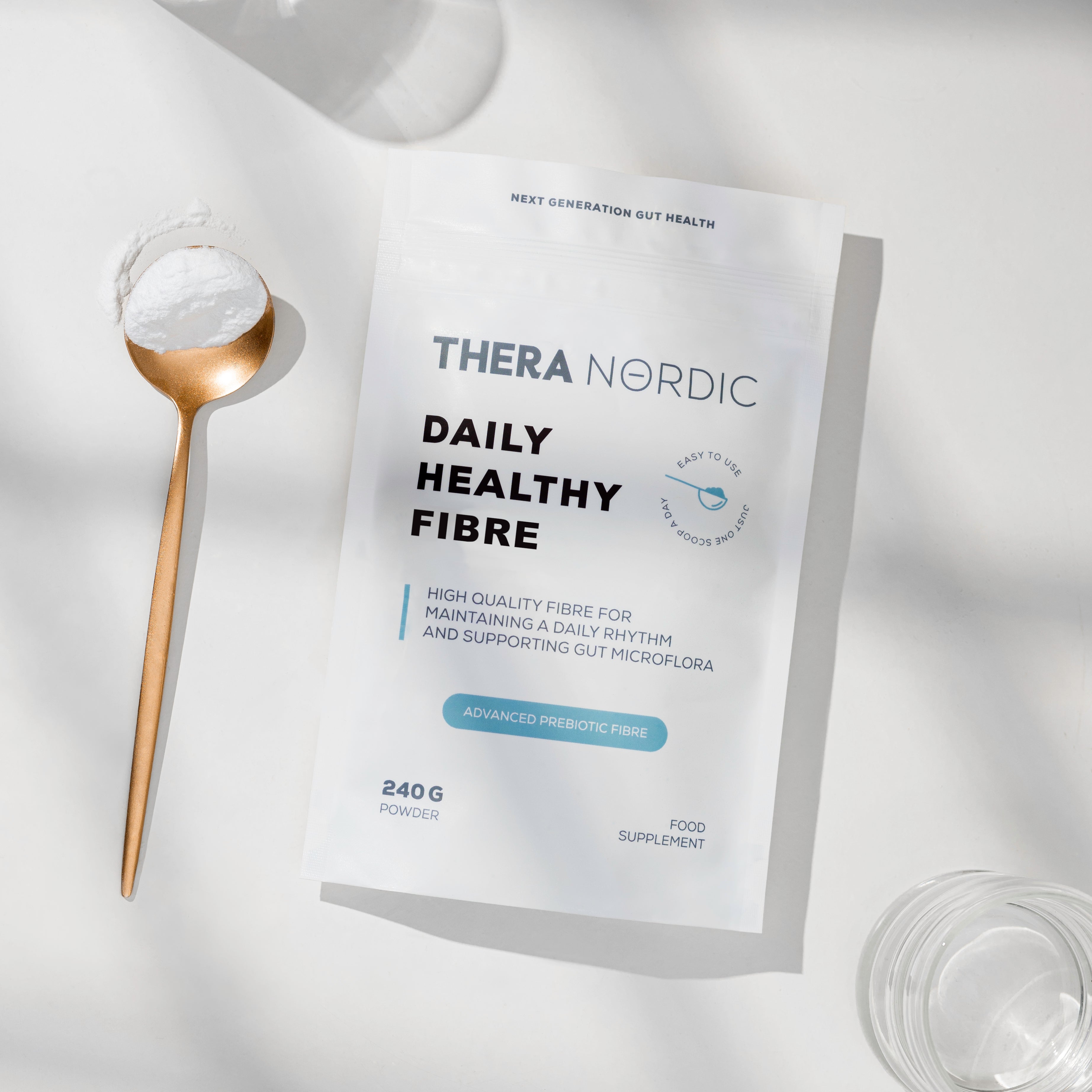Stomach acid, specifically hydrochloric acid (HCL) plays a crucial role in the digestive process. A condition called hypochlorhydria—where the stomach produces too little acid—can significantly impair digestion and nutrient absorption. In this article we'll look at hypochlorhydria, the role of HCL in digestion, and insights from recent research into the use of Betaine HCL supplements (like Triple HCL) to counteract low stomach acid.
What is Low Stomach Acid and Why Does It Matter?
Hypochlorhydria is defined as having abnormally low levels of stomach acid. This condition affects the body’s ability to properly digest food, especially proteins, and can hinder the absorption of essential nutrients like calcium, iron, and vitamin B12. Without sufficient stomach acid, proteins are not broken down as efficiently, leading to larger, undigested food particles reaching the intestines, potentially causing digestive discomfort and even contributing to food sensitivities and malnutrition. [1]
The Role of HCL in Digestion
Hydrochloric acid (HCL) is secreted by the stomach’s parietal cells and serves several key functions in digestion:
- Protein Digestion: HCL denatures proteins, unfolding them so that digestive enzymes like pepsin can break them down more effectively. Pepsinogen, the precursor to pepsin, requires an acidic environment (pH 2-3) to convert into its active form. [1]
- Nutrient Absorption: Adequate stomach acid is necessary for the absorption of critical micronutrients, such as vitamin B12, iron, and calcium.
- Pathogen Protection: Stomach acid acts as a barrier, killing potentially harmful microorganisms before they enter the intestines. When acid levels are low, there is an increased risk of bacterial overgrowth, leading to conditions like small intestinal bacterial overgrowth (SIBO).
Normal production of Hydrochlorid acid in Stomach
After a meal, healthy output of HCL by the parietal cells in the stomach is 20-30 mmol per hour[5]. This is equivalent to 3000-4500mg of Betaine Hydrochloride.
In simpler terms, after eating the stomach generates the equivilant of 6-9 capsules of Triple HCL worth of hydrochloric acid in one hour. It continues this until it has reached a very low acidic pH (i.e. highly acidic). If the output of the HCL cannot keep up with the demand, it results in digestive problems.
The Prevalence of Low Stomach Acid and its Link to Aging
Low stomach acid (hypochlorhydria) is more common than one might think, and its prevalence increases with age. Studies have shown that while younger individuals typically maintain healthy acid production, a significant portion of the elderly population experiences reduced gastric acid secretion.[1]
This age-related decline is thought to result from a variety of factors, including a decrease in the number of acid-producing parietal cells, chronic inflammation, and the use of medications. In older adults, the time it takes for the stomach to re-acidify after meals significantly increases, leading to prolonged periods of reduced stomach acid during digestion.
Important Note: When stomach acid levels are measured during fasting, both younger and older people can have the same acidity levels in their stomach. However, after a meal the re-acidifying of the stomach can take more than double the time for older people (42 minutes vs. 89 minutes). This sluggishness of digestion may be enough to cause noticeable problems.
So, while fasting levels of stomach acid may appear normal in some older adults, meal-induced hypochlorhydria can impair digestion over time, contributing to symptoms such as bloating and indigestion [1].
Insights from the Betaine HCL Studies
A study [2] explored the use of Betaine HCL supplements to address low stomach acid levels in healthy volunteers who were given medications to induce hypochlorhydria. In this study, subjects were given 20 mg of the proton-pump inhibitor (PPI) rabeprazole twice daily for four days to suppress stomach acid production. After confirming that the subjects’ stomach acid levels were low (pH > 4), they were administered 1,500 mg of Betaine HCL.
The results were clear. Betaine HCL significantly lowered the gastric pH from an average of 5.2 to a highly acidic 0.6 within just 30 minutes. This rapid re-acidification of the stomach helped restore the digestive environment, demonstrating Betaine HCL's potential to support individuals with hypochlorhydria, especially those who take acid-suppressing medications. The study also found that Betaine HCL's acidifying effects were temporary, lasting for about 77 minutes, long enough to aid digestion during a meal.
On another study [4] which was a randomized, four-way crossover trial, nine subjects were given no PPIs or other medications but were given 1500, 3000, or 4500 mg doses of Betaine HCL. This equates to roughly 3-9 capsules.
The subjects experienced no adverse effects from either the Heidelberg (acid measuring) capsule or the Betaine HCL, despite the high dosages.[3][4]
Safety and Effectiveness of Betaine HCL Supplementation
One of the key takeaways from the studies is the safety of Betaine HCL supplementation. In this trial, the supplement was well-tolerated by all subjects, with no significant side effects. Even in very high doses of 9 capsules.
While it is great to have a study confirm this, Betaine HCL has been used for decades by millions of people and it is known to be well tolerated. However, ingestion of Hydrochloric Acid can sound rather daunting at first, so it is good to have some studies to show it is safe.
The exception is, when you have gastritis, gastric ulcers or some form of compromised mucosal health in the GI tract. In these cases the use of Betaine HCL supplements is not advised before the mucosa has healed. This is where we would first advise a course of REZCUE.
Conclusion
By providing a quick but temporary re-acidifying of the the stomach, Betaine HCL improves digestion, protein breakdown, and nutrient absorption, while also killing harmful bacteria from the food.
References:
- Guilliams TG, Drake LE. Meal-Time Supplementation with Betaine HCL for Functional Hypochlorhydria: What is the Evidence? Integr Med (Encinitas). 2020 Feb;19(1):32-36. PMID: 32549862; PMCID: PMC7238915. https://pmc.ncbi.nlm.nih.gov/articles/PMC7238915/
- Yago MR, Frymoyer AR, Smelick GS, Frassetto LA, Budha NR, Dresser MJ, Ware JA, Benet LZ. Gastric reacidification with betaine HCL in healthy volunteers with rabeprazole-induced hypochlorhydria. Mol Pharm. 2013 Nov 4;10(11):4032-7. doi: 10.1021/mp4003738. Epub 2013 Sep 10. PMID: 23980906; PMCID: PMC3946491. https://pmc.ncbi.nlm.nih.gov/articles/PMC3946491/
- Taylor, L.; McCaddon, A.; Wolffenbuttel, B.H.R. Creating a Framework for Treating Autoimmune Gastritis—The Case for Replacing Lost Acid. Nutrients 2024, 16, 662. https://doi.org/10.3390/nu16050662
- Surofchy, D.D., Frassetto, L.A. & Benet, L.Z. Food, Acid Supplementation and Drug Absorption – a Complicated Gastric Mix: a Randomized Control Trial. Pharm Res 36, 155 (2019). https://doi.org/10.1007/s11095-019-2693-5
- J. Keller, Gastrointestinal Digestion and Absorption, Editor(s): William J. Lennarz, M. Daniel Lane, Encyclopedia of Biological Chemistry (Second Edition), Academic Press, 2013, Pages 354-359, ISBN 9780123786319, https://doi.org/10.1016/B978-0-12-378630-2.00106-7




